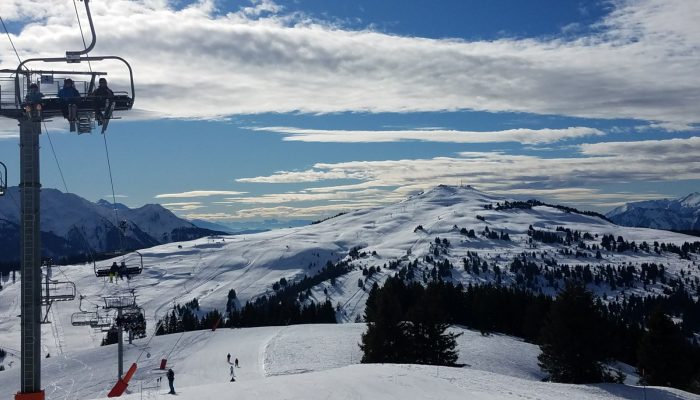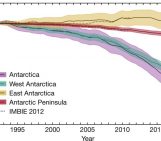
Ski or water ski? Carnival season is typically when many drive straight to the mountains to indulge in their favorite winter sport. However, by the end of the century, models seem to predict a very different future for Carnival, with a drastic reduction in the number of snow days we get per year. This could render winter skiing something of the past, a bedtime story we tell our grandchildren at night…
Christoph Marty and colleagues investigated two Swiss regions reputed for their great skiing resorts and show that the number of snow days (defined as a day with at least 5 cm of snow on the ground) could go down to zero by 2100, if fuel emissions and economic growth continue at present-day levels, and this scenario is less dramatic than the IPCC’s most pessimistic climate change scenario (Marty et al., 2017). They show that temperature change will have the strongest influence on snow cover. Using snow depth as representative for snow volume, they predict that snow depth maxima will all be lower than today’s except for snow at elevations of 3000 m and higher. This implies that even industrially-sized stations like Avoriaz in the French Alps, with a top elevation of 2466 m, will soon suffer from very short ski seasons.
Marty et al. (2017) predict a 70% reduction in total snow volume by 2100 for the two Swiss regions, with no snow left for elevations below 500 m and only 50% snow volume left above 3000 m. Only in an intervention-type scenario where global temperatures are restricted to a warming of 2ºC since the pre-industrial period, can we expect snow reduction to be limited to 30% after the middle of the century.
Recent work by Raftery et al (2017) shows that a 2ºC warming threshold is likely beyond our reach, however limiting global temperature rise, even above the 2ºC target, could help stabilize snow volume loss over the next century. We hold our future in our hands!
Further reading/references
- Marty, C., Schlögl, S., Bavay, M. and Lehning, M., 2017. How much can we save? Impact of different emission scenarios on future snow cover in the Alps. The Cryosphere, 11(1), p.517.
- Raftery, A.E., Zimmer, A., Frierson, D.M., Startz, R. and Liu, P., 2017. Less than 2 C warming by 2100 unlikely. Nature Climate Change, 7(9), p.637.
- Less snow and a shorter ski season in the Alps | EGU Press release
Edited by Sophie Berger
Marie Cavitte just finished her PhD at the University of Texas at Austin, Institute for Geophysics (USA) where she studied the paleo history of East Antarctica’s interior using airborne radar isochrone data. She is involved in the Beyond EPICA Oldest Ice European project to recover 1.5 million-year-old ice. She tweets as @mariecavitte.




